Employing outdoor space, keeping customers engaged and finding ways to generate new revenue continue to be focal points for wineries and other businesses as the COVID-19 pandemic endures.
Years before most people had ever heard the term “coronavirus,” Flat Creek Estate Winery & Vineyard in Marble Falls, Texas optimized unused portions of its grounds by building an 18-hole disc golf course, capitalizing on a sport that has grown more popular over the past decade.
The course, which includes two options for play — a recreational set-up for beginners and a professional layout for tournaments and avid disc golfers — was created by renowned course designer John Houck of Houck Design (http://houckdesign.com).
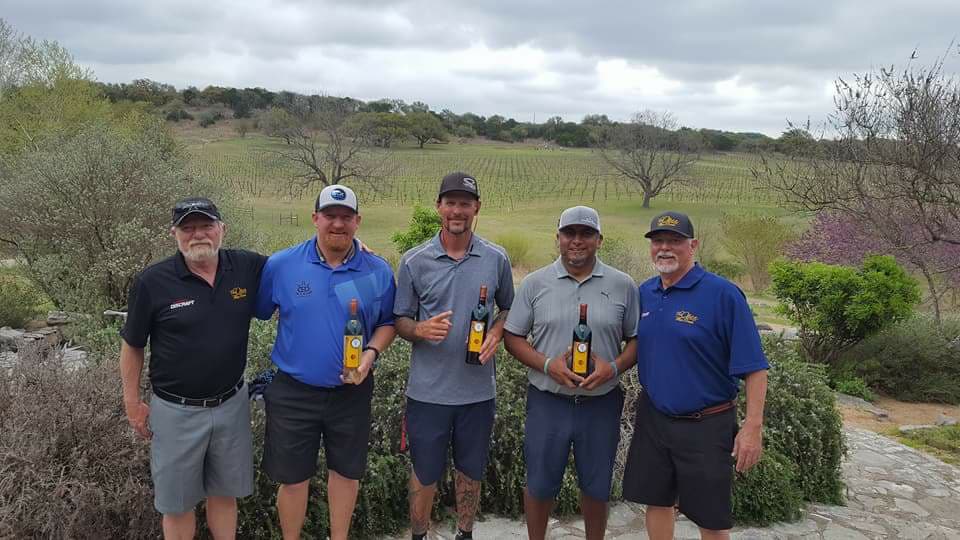
The Open was Flat Creek’s first voyage into hosting a professional disc golf tournament. 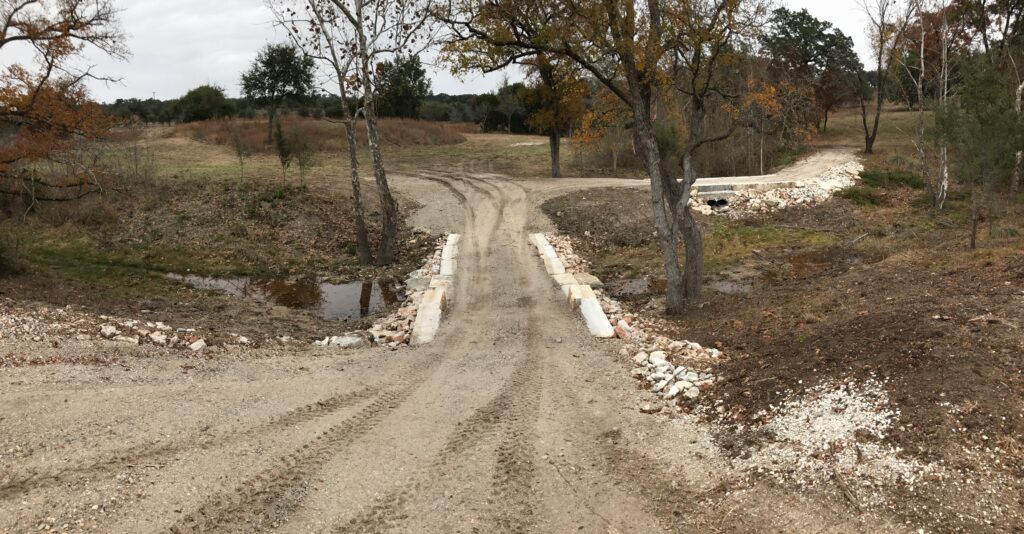
The crossing on the eighth hole. 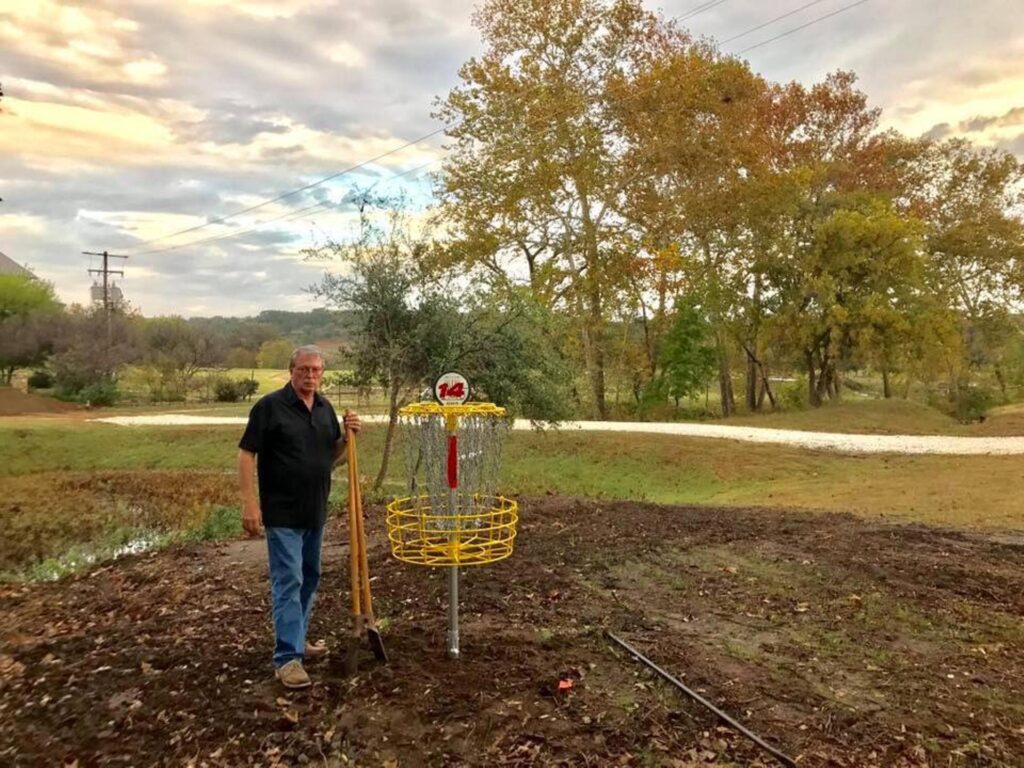
Flat Creek owner Rick Naber.
The course opened in 2017, Director of Business Operations Amanda Koraska said, adding that the original plan was to develop a 9-hole course on their own.
“I was eager to find an incentive for guests to tour some of the scenic parts of the property,” Koraska recalled. “Disc golf provided an opportunity for guests of all ages to enjoy the property and spend additional time (and money) at the estate. Meeting with John provided us with a broader vision for the course inclusive of a disc golf club, local and national level tournaments, and a pro-shop.”
Houck mapped the course, and the vineyard crew went to work clearing rural parts of the land and installing walkways over creeks. Flat Creek Estate owner Rick Naber — being a former engineer — helped with the course development. Naber’s construction background, along with timing the project between post-harvest and pre-pruning allowed Flat Creek staff to turn their attention to the project.
Once they opened, it didn’t take long for the tournaments to begin, with the winery starting with small local tournaments and hosting its first professional tournament, The Open, sponsored by Disc Craft, in March 2018.
“The Open brought players from all over the world with prize payouts exceeding $16,000,” Koraska said. “It was our first glimpse into the world of professional disc golf tournaments complete with sponsors and hundreds of spectators.”
While Flat Creek’s course build out was about $150,000, that price tag represents a championship-level course with extensive land clearing, concrete tee pads (a requirement for Pro Disc Golf Association tournaments) and several bridges.
It was well worth it, Koraska said, adding that wineries looking to add a recreational course can do so more inexpensively.
“Designing a course of this caliber is a financial investment,” she said. “We saw this as not only an investment in the disc golf course, but an overall improvement to the property. Several acres that were once un-walkable are now easily accessible including a gorgeous overlook at the north side of the property where a picnic area has been added. For wineries looking to dip their toe into disc golf, a self-designed recreational 9-hole course could be developed for less than $10,000.
“The biggest deciding factor for us was the interest we had in hosting high-level tournaments that would bring avid disc golfers and spectators to the course.”
Upkeep involves less than you might expect.
“Once the initial clearing was completed, the upkeep isn’t much more than what we were already doing to keep the property manicured,” Koraska noted. “Some of the more rural parts of the property where we did not mow in the past now need to be mowed, but disc golf courses don’t require near the amount of maintenance of a traditional golf course. Part of the lure of the sport is enjoying the natural habitat. Most disc golfers are happy as long as the grass isn’t more than ankle height. The fairways are all-natural and we don’t do any watering.
“For upper-level tournaments, there is some additional maintenance involved to get the course ready. Flagging or spray painting out-of-bounds areas, mowing the grass to specific heights and roping off spectator areas, but tournaments of this caliber bring additional revenue to support the extra effort.”
Disc Golf members have added approximately $12,000 in annual revenue for Flat Creek, but that’s a conservative estimate, said Koraska, who added that the winery’s leadership estimates the course broke even at three years after installation despite leadership not heavily pursuing larger tournaments.
“For wineries looking to invest in a championship level course, I would recommend hiring a Disc Golf Pro whose job description would include full-time promotion of the course. This includes hosting monthly tournaments, member events, beginners classes, and recruiting sponsored PDGA tournaments in the A-tier and above,” Koraska said. “Investing in a dedicated staff member to coordinate disc golf specific events can really show in the final revenue numbers.”

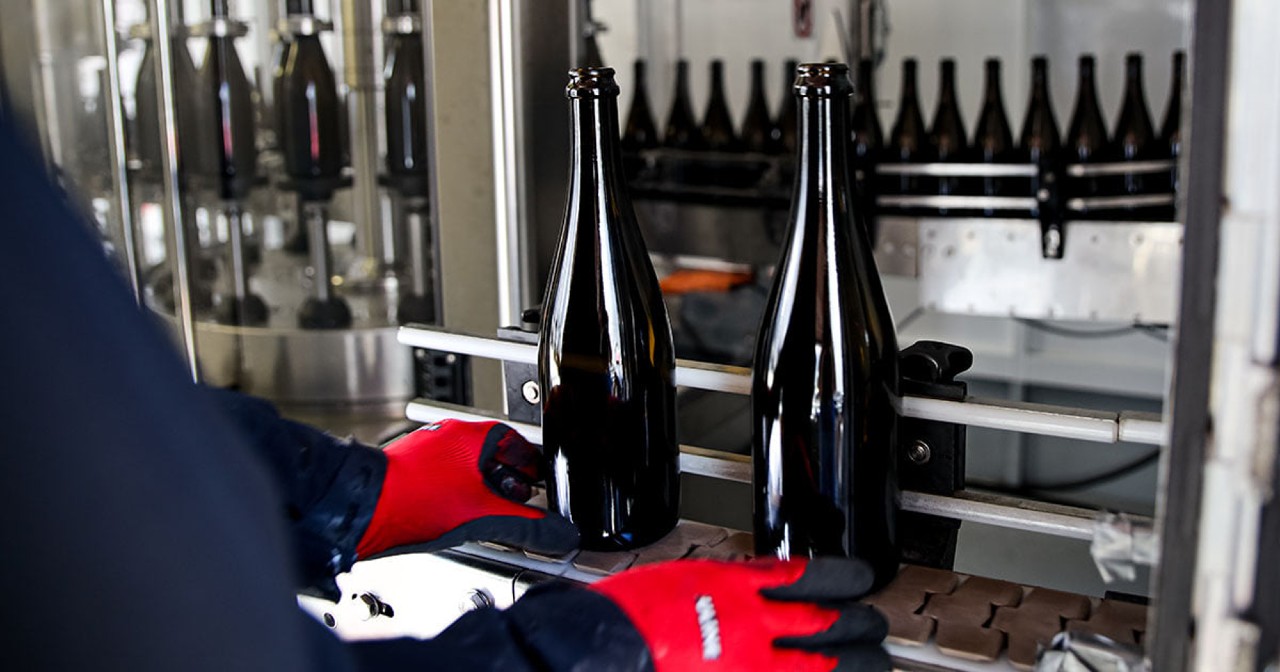
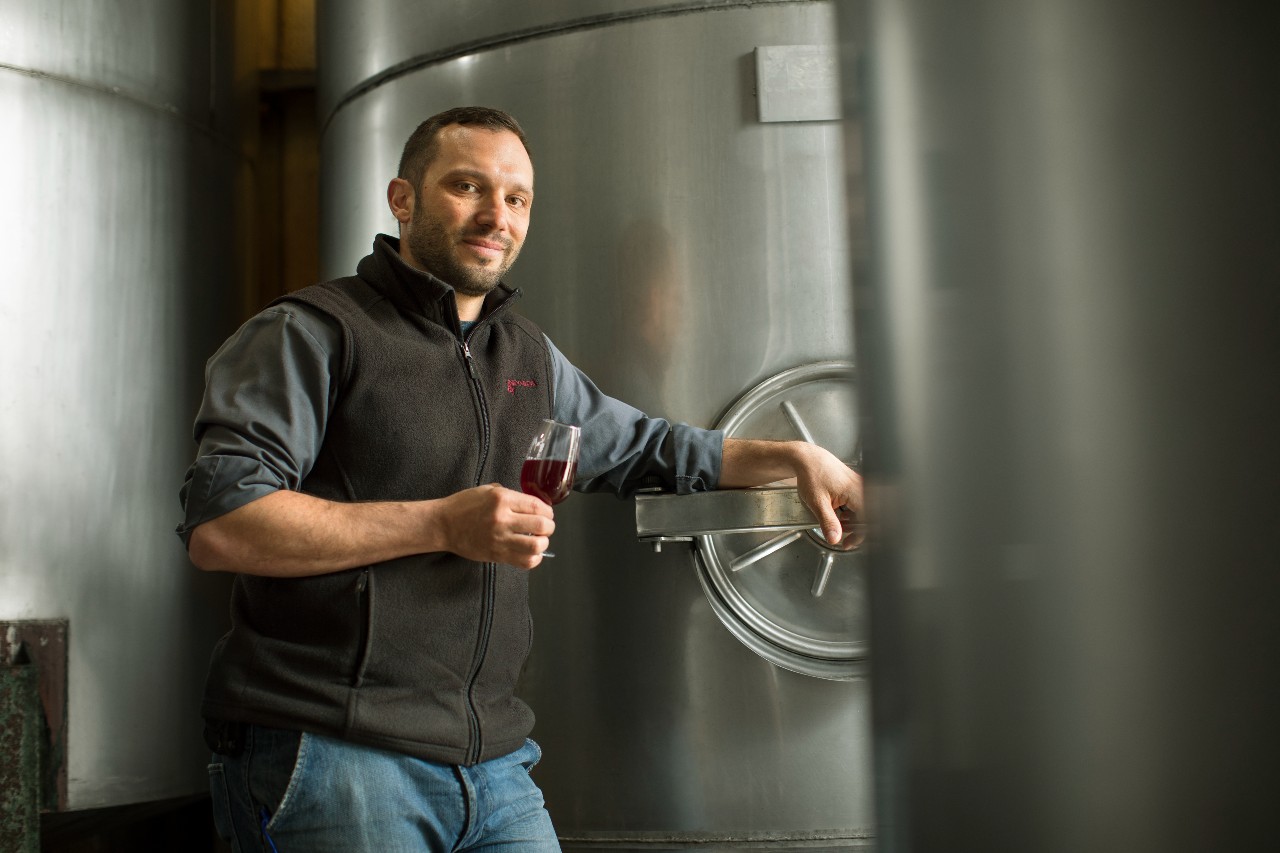

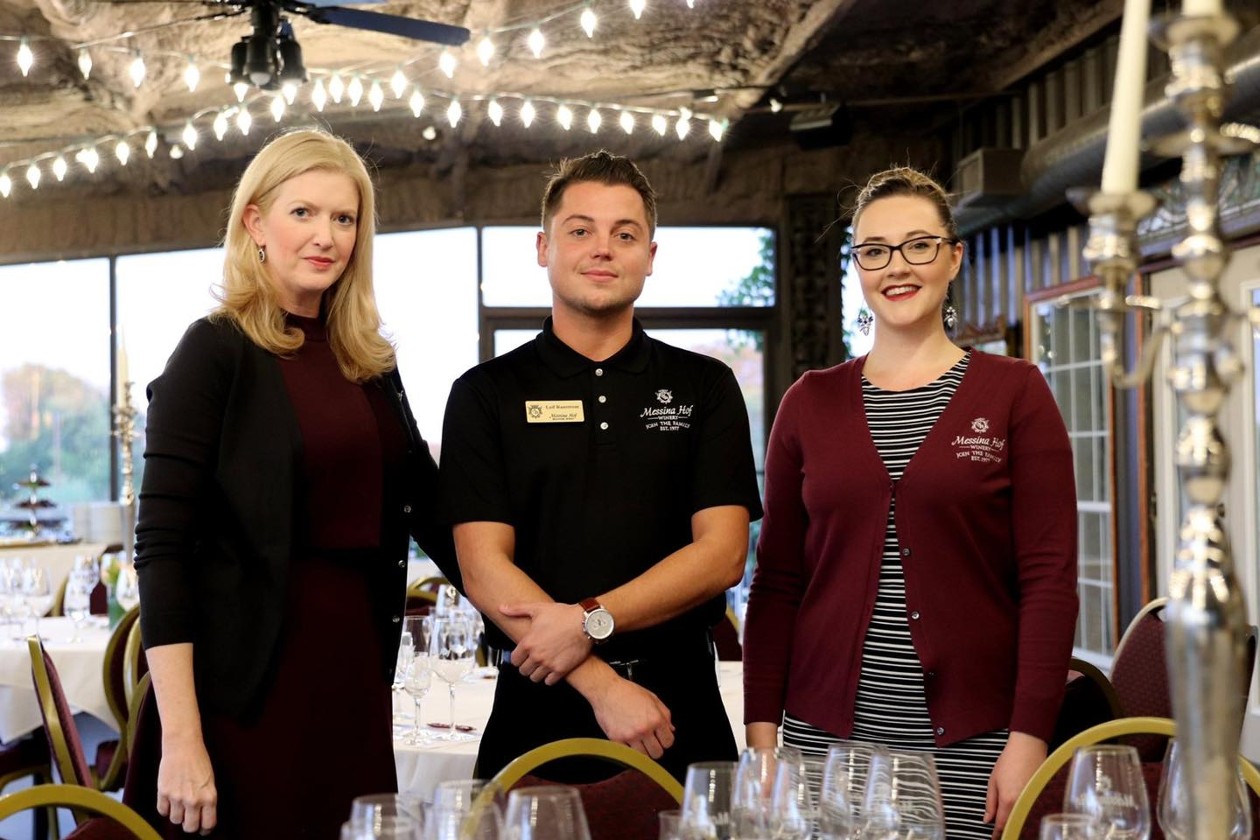
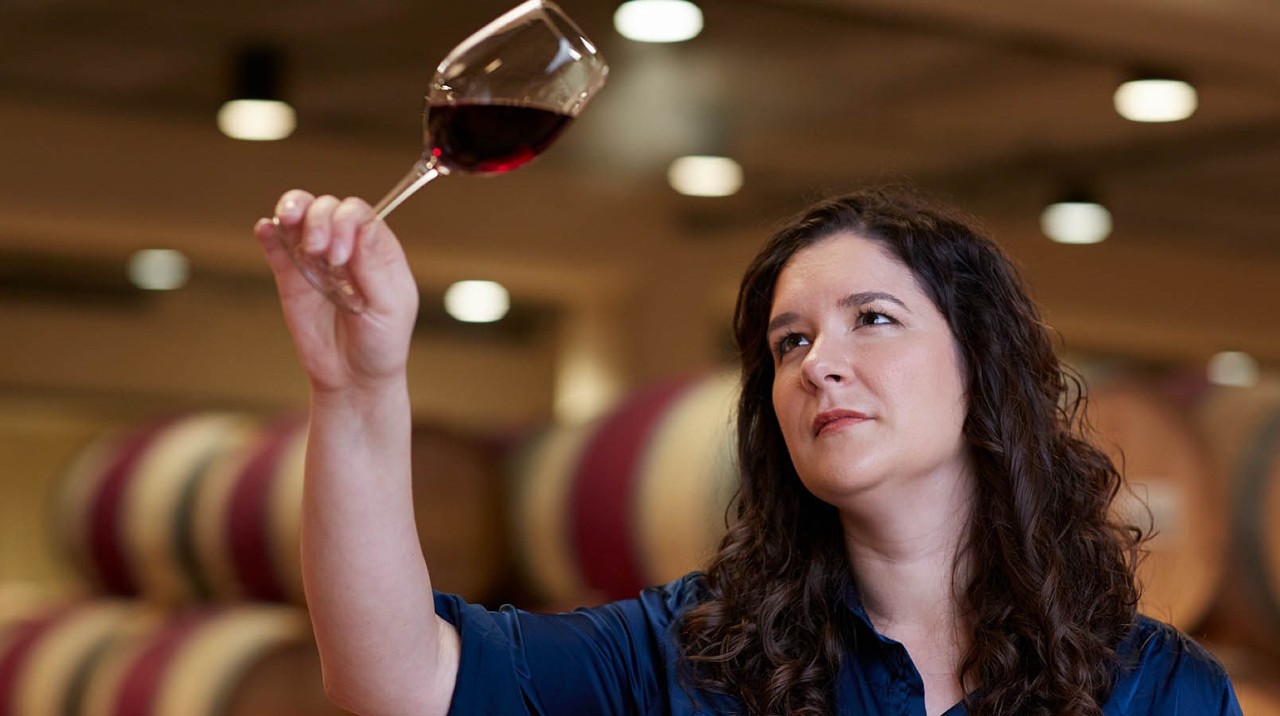


Be the first to comment